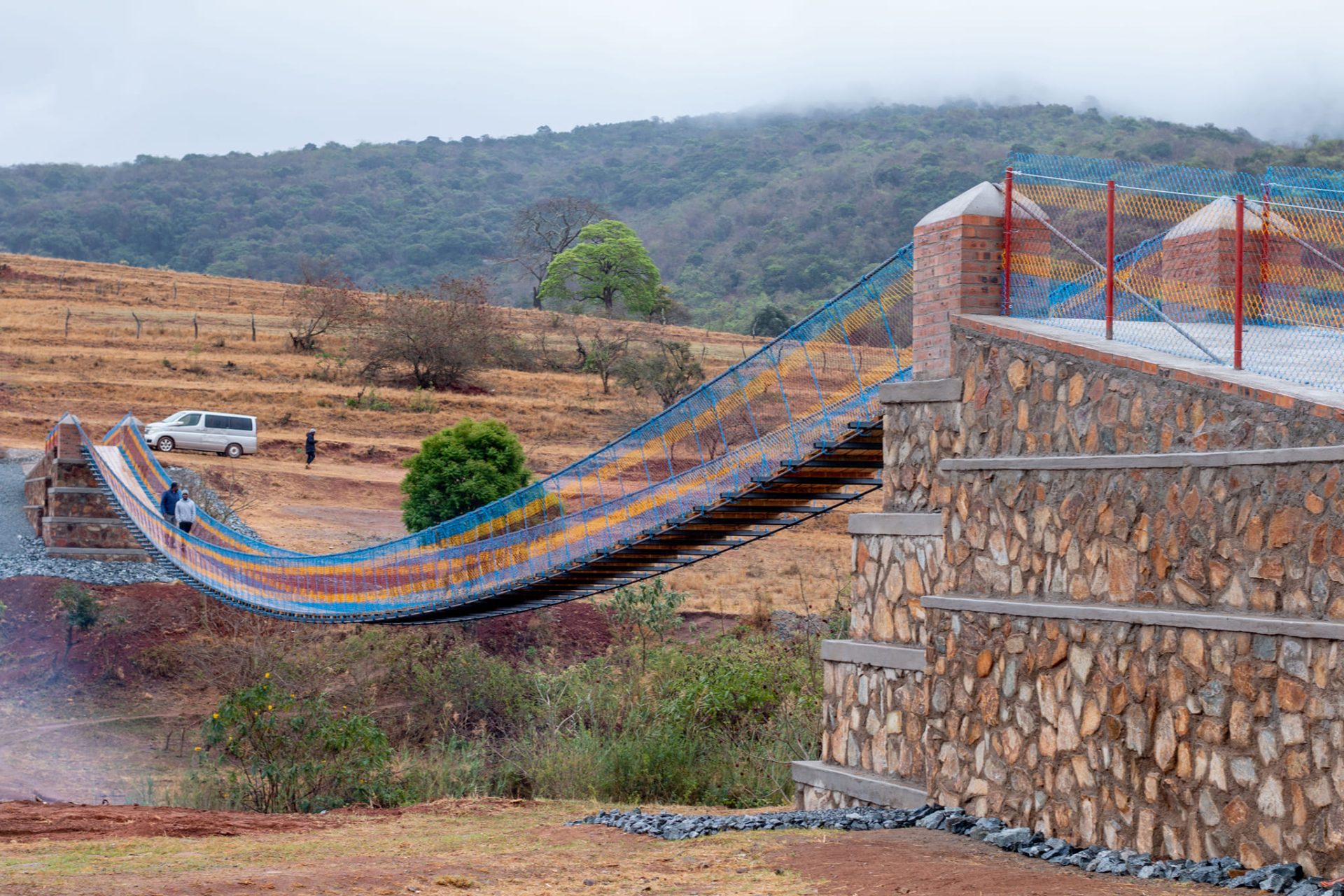By Ncaba Ntshakala
The 84-metre-long Elubaneni Footbridge has officially been inaugurated, which is the 27th footbridge constructed by Engineers in Action (EIA) and the Microprojects Programme since the two entities began their partnership in 2017.
The Elubaneni Footbridge which is a suspended bridge spanning the Phongolwane River has been hailed as it now provides a vital link between Ngudzeni and Nkomonye communities in the Shiselweni region.
The bridge was said to significantly enhance access to essential services and economic opportunities for residents.
In a statement shared by the Ministry of Economic Planning and Development, it expresses that the bridge, which is the sixth completed in 2024,
RELATED: 25th bridge completed by Ministry and USA Engineers
was built over an intense eight-week period by a dedicated team of professional engineers from the United States, alongside civil engineering students from Oregon State University, University College London,
and Western University in Ontario. Nine students contributed their skills to this project, working closely with seasoned engineers to ensure the creation of a safe, reliable crossing for the community.
“For years, the Phongolwane River, particularly during the rainy season, posed a significant challenge for residents of Ngudzeni and Nkomonye, cutting off access to critical services such as healthcare, education, and markets,” reads the statement.
“The new footbridge is expected to dramatically reduce these challenges, allowing residents, including children who attend school on the other side of the river, to safely and reliably cross the river throughout the year.”

The Ministry further asserted that the EIA and the Microprojects Programme have made a lasting impact on the infrastructure of Eswatini through their collaboration, with a shared focus on serving rural and underserved communities.
“The Elubaneni Footbridge stands as a testament to this ongoing commitment to empower these communities through critical infrastructure development.
Engineers in Action, a non-profit organization, works across Eswatini, Bolivia, and Peru, focusing on improving access to clean water, sanitation, and safe crossings.
Through their Bridge Programme, EIA has been instrumental in transforming the lives of thousands of people, providing secure passage over rivers and ravines, and connecting communities to much-needed resources,’ states the Ministry in the statement.
RELATED: Built Infrastructure Key to Eswatini’s Socio-Economic Transformation
The statement added that the Elubaneni Footbridge is not just an engineering feat but also a model of global collaboration.
It noted that by involving engineering students from across the globe, the project provided hands-on experience in civil engineering while enhancing international cooperation and cross-cultural exchange.
“The students, under the guidance of professional engineers, gained valuable field experience while contributing to the social and economic advancement of rural Eswatini.
These young engineers left their mark on the project while also acquiring essential skills that will shape their future careers,” says the Ministry.

Moreover, EIA and the Microprojects Programme are set to begin their final bridge construction project of the year on this September, in Luyengo.
Unlike the Elubaneni Footbridge, the Luyengo project will be carried out exclusively by staff from EIA and Microprojects, who have gained considerable expertise in suspension bridge construction.
This new bridge, the third suspension bridge built in Eswatini by EIA, is an important step in the organization’s strategy to extend their efforts to more semi-urban and urban areas starting in 2025.
“The prominence of suspension bridges in Eswatini’s flat terrain makes them a preferred solution for crossing rivers in rural areas.
Over the years, these bridges have played a crucial role in connecting isolated communities, allowing safer and more efficient movement of people and goods.
The Luyengo bridge, expected to be completed by the end of October 2024, will close out a successful building season for EIA and the Microprojects Programme, during which seven footbridges will have been constructed across different regions in Eswatini,” expressed the Ministry.


